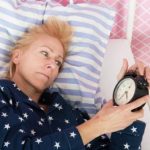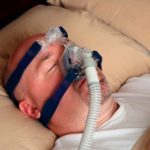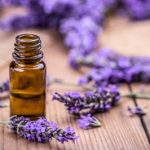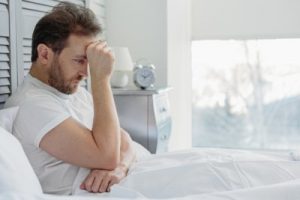As we begin Sleep Awareness Week, our weekly roundup focuses on articles related to sleep-related problems and treatments for the same. The topics covered include information on the causes and treatment options of terminal insomnia, menopause and insomnia, and central sleep apnea. We have also published articles on essential oils for sleep and simple tricks for a good night’s sleep, which can help improve sleep even for those who do not have sleep problems.
Sleep Awareness Week is an initiative of the National Sleep Foundation to spread awareness of the importance of good sleep. This year’s campaign, “Begin with Sleep,” not only aims to spread awareness of the effect of sleep on health but also about the benefits of good sleep and its impact on overall well-being and individual safety.
Advertisement
While it is good to know the importance of optimal sleep, it is also good to know how we can improve our sleep. In addition, it is essential to identify sleep-related problems and treat them. Our articles published for Sleep Awareness Week 2018 focus on these aspects.
Terminal Insomnia: Do You Wake up Earlier Than You Would Like?
Terminal insomnia is a condition where you can fall asleep easily when going to bed but find yourself waking up much earlier than you want and are unable to fall back asleep. A precise terminal insomnia definition would be when early awakening occurs for three nights or more, waking up more than 30 minutes too early. Terminal insomnia is also sometimes referred to as “end of night” insomnia.
It is important to note that this condition also applies to those who wake up much earlier than they intended, regardless if you are using this extra time to simply lay in bed rather than getting up. Continue reading…
 How Is Menopause Linked to Insomnia? Tips for Menopause Sleep Problems
How Is Menopause Linked to Insomnia? Tips for Menopause Sleep Problems
Menopause sleep problems or menopause and insomnia often go hand in hand. This major change in a woman’s life is marred by several hormonal, physical, and emotional changes that often affect the amount of sleep a woman gets, as well as sleep quality.
The technical diagnosis of menopause is defined as a full year passing since a woman’s last menstrual period. The periods before and after this period are referred to as perimenopause and post-menopause, respectively. It is during perimenopause that a woman’s ovaries begin to underproduce several key hormones, particularly estrogen and progesterone, causing many of the symptoms seen in menopausal women. Continue reading…
 Central Sleep Apnea: Causes, Symptoms, and a Promising Treatment Using Implanted Devices
Central Sleep Apnea: Causes, Symptoms, and a Promising Treatment Using Implanted Devices
Central sleep apnea (CSA) is one type of sleep apnea, a sleep disorder affecting nearly 20 million Americans. Obstructive sleep apnea is caused by a blockage of the airways, central sleep apnea is a condition in which the brain fails to signal to the muscles responsible for breath control, and mixed sleep apnea is a combination of the two types.
A promising new treatment for central sleep apnea: Study
A new possible treatment method is underway, which consists of an implanted device to help improve central sleep apnea. Dr. William Abraham, lead researcher, said, “Central sleep apnea affects more than a third of heart failure patients and is known to make the condition worse. Unfortunately, we don’t have good treatments available for this type of apnea. Currently, positive airway pressure devices are used, but many patients don’t tolerate it well.” Continue reading…
 Essential Oils for Sleep: 13 Ways to Get the Best Sleep Ever
Essential Oils for Sleep: 13 Ways to Get the Best Sleep Ever
If you’re struggling to get a good night’s sleep, then essential oils for sleep may be what you need. Essential oils have grown in popularity as a natural treatment for many ailments, including pain relief, reducing stress and anxiety, and even aiding in sleep.
Essential oils have been around for thousands of years and are oils that have been extracted from botanicals. These are highly concentrated and are a pure form of the oils. Due to the process of extracting such oils and the limited quantity that is extracted from each botanical, essential oils can be quite pricey.
Sleep problems are on the rise, and although a person can easily take a medication to improve their sleep, they are often habit forming and addictive. Instead, essential oils offer a more natural and less addictive way to promote sleep and relaxation.
Although overall research on the benefits of essential oils is limited, it doesn’t take away from the fact that people are obtaining relief through aromatherapy . For example, lavender and clary sage are known to promote relaxation and sleep. Continue reading…
 Simple Trick Helps You Get a Good Night’s Sleep
Simple Trick Helps You Get a Good Night’s Sleep
You’ve had some herbal tea, you shut off your devices, your room is cool, and the lights are off. You basically have the perfect ritual to fall fast asleep. And yet, here you are wide awake staring at the ceiling. What’s going on?
Well, some of us simply can’t fall asleep regardless of our environment because we simply have too much on our minds.
Advertisement
Did you lock your car door? Did you pick up the mail? What other errands do you have to complete tomorrow? It’s no wonder you can’t sleep with so much on your mind.
This is where new research findings come to the rescue to help you get those things off your mind so you can enjoy a good night’s sleep. Continue reading…
Sleep problems can range from simple episodes when one doesn’t get sleep to chronic conditions such as terminal insomnia and central sleep apnea. One study has also found a relationship between menopause and sleep. These problems could have varied causes ranging from physiological problems causing discomfort and illnesses to our mental state. While doctors do prescribe medications, they also recommend lifestyle changes and reducing stress. Essential oils for sleep are not only found to reduce stress and help to relax and calm down, they are also a form of alternative therapies that could help to reduce blood pressure, improve circulation, and relieve physical discomfort.

